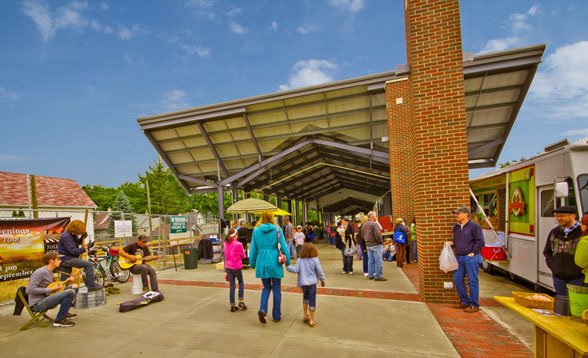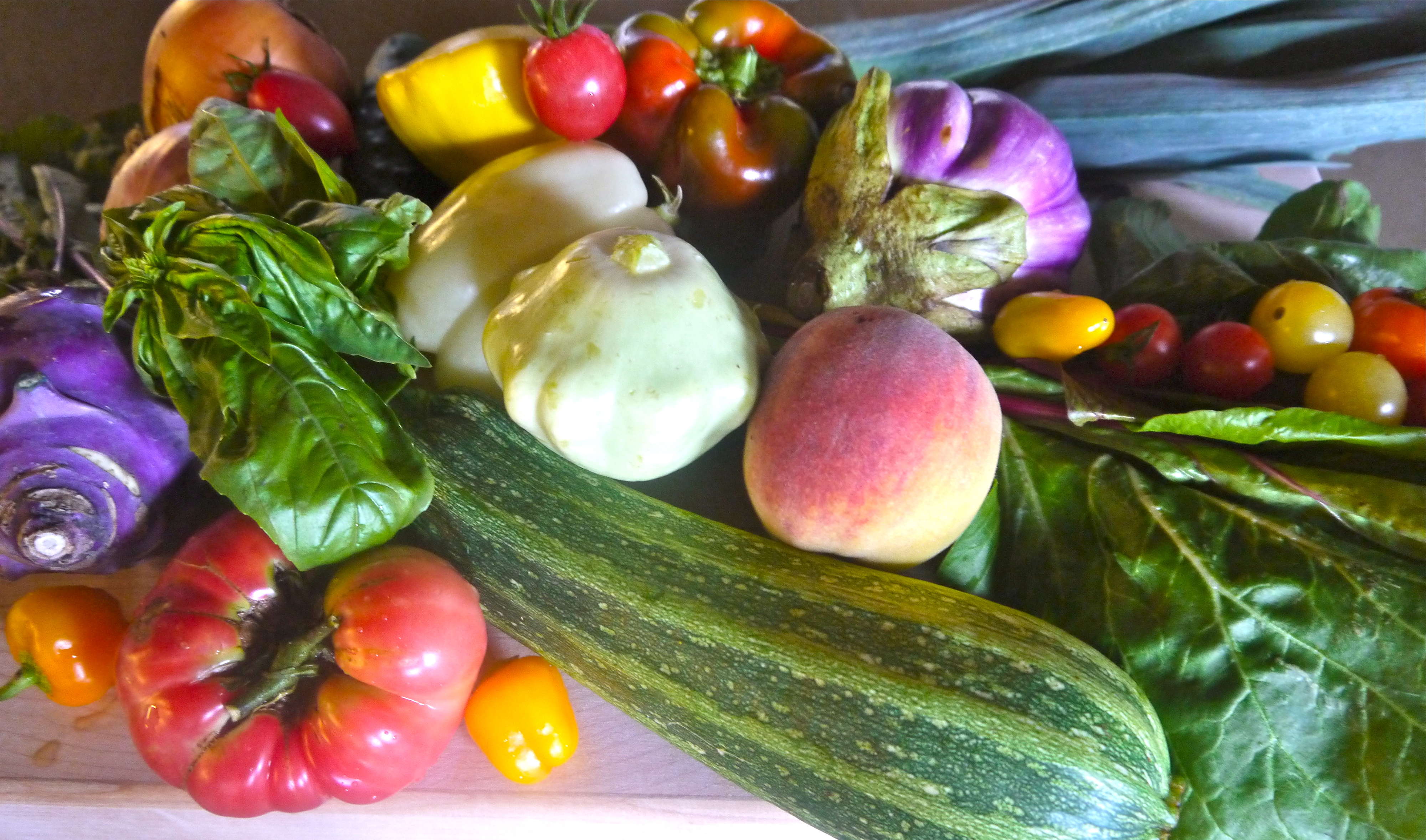I had a recent awakening at our local Farmers’ Market last weekend, which I’ve been neglecting from crazy summer travel and busyness.
I am thanking my lucky stars that it’s open for several more months, because I have been missing out BIG time!
The smell of the freshly picked, pristinely grown, beautiful variety of produce;
The down-to-earth, slightly hippie vibe from the cross section of people and guitarists playing their music;
And the smile and energy from the farmers, whose sweat helped bring all of this delicious, local food to fruition is unparalleled!
For the local folk in Grand Rapids, if you haven’t seen the recently renovated Fulton Street Farmers’ Market in its 90th season, do yourself a favor and check out one of HGTV’s top farmer’s markets across the country…
One hour and $100 later, Kyle and I walked away with two back-packs full of produce and some grass-fed lamb and pork for the week (the pic below doesn’t even show it all!).
I guess I shouldn’t leave out the MASSIVE beef liver that I bought, too, which I’m going to attempt later this week (anyone want to join me!?).
And while we marveled at the cost savings of buying this local food, there are tons of other synergistic benefits that reach far beyond.
3 Reasons to Be a “Locovore”
- Travel Distance: On average, the travel distance of grocery store food to our refrigerators is 1,500 miles, vs. local versions that may be as close as 10 miles.
- Our Health: Food that travels long distances is typically irradiated (exposed to radiation to kill bacteria), which increases shelf-life and decreases nutrients (see previous post here). It also helps us to eat seasonal foods, which are optimally nutrient dense during their respective seasons.
- Enormous Gas Emission & Energy Savings: A study in Iowa concluded that locally producing 10% more of the produce consumed would decrease greenhouse gas emissions between 6.7 and 7.9 million pounds, and save 280,000 to 346,000 gallons of fuel. Plus, the packaging and plastic to keep the food fresh is difficult (or impossible) to reuse or recycle.
If you can’t buy locally, grow your own produce in your backyard, or join a community supported agriculture (CSA) program, where farmers will deliver the harvest of that week to your doorstep!



